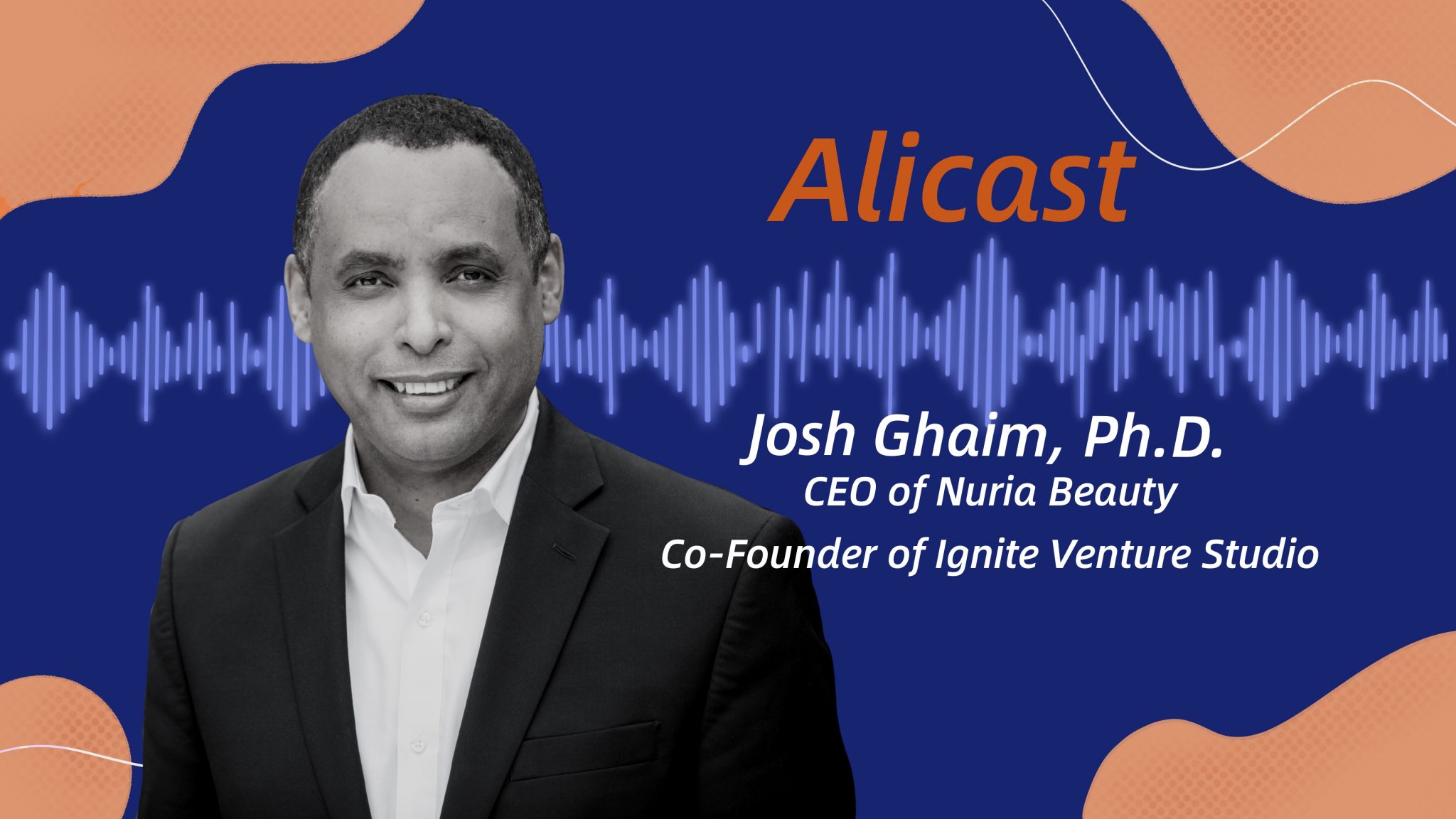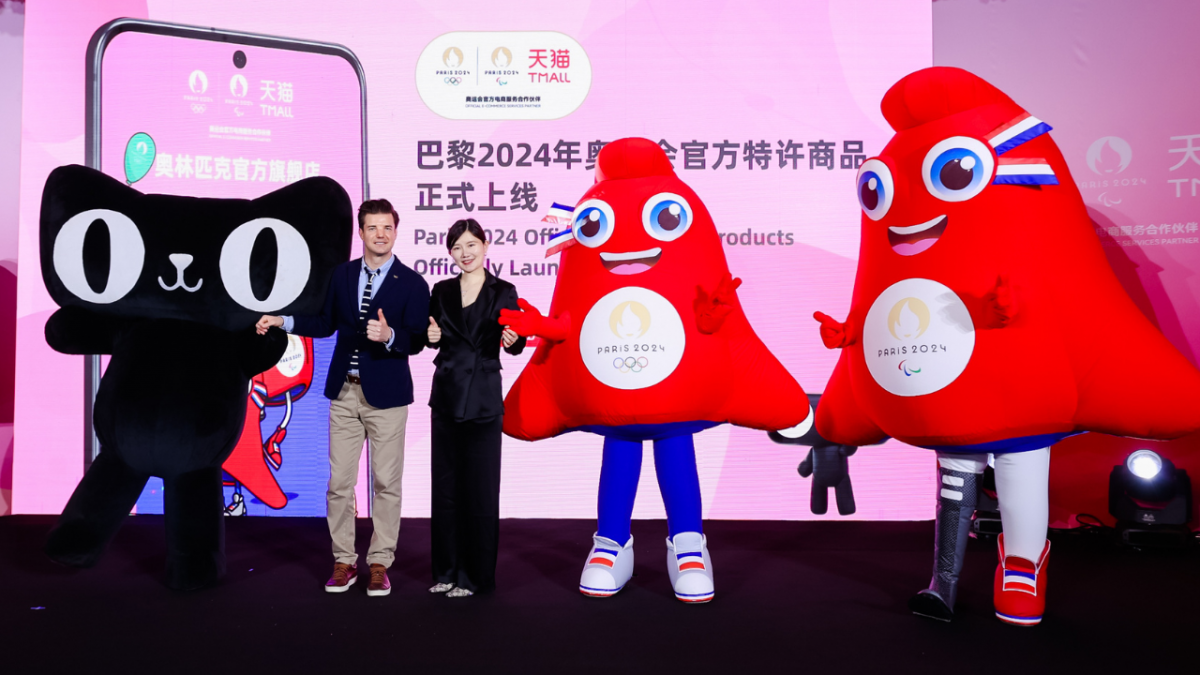
Alizila’s Julie Huang: Josh Ghaim thank you for joining us. Now, you launched Nuria in 2019. Tell us what is Nuria?
Nuria’s Josh Ghaim: Thank you, Julie. It’s such a pleasure to join you today. Nuria is a brand that we created, inspired because of the traditions and rituals that women have around the world. We develop those products based on the curations that we get from each region. To give an example, if you looked at Japan, there might be a very specific routine. And then we go and look for ingredients from Japan and formulations that are more modern or more unique, and we bring them as part of the Nuria portfolio. But the second part of what Nuria is is this idea that not all women around the world have the same opportunities, and education being one of the main focus areas, we partnered with an organization called She’s the First, which is based in New York to support girls’ education. So I think in, in, in a nutshell, Nuria is basically a brand that brings the wisdom and the knowledge that women have from around the world so that they can share it with each other. Second is collectively to actually promote even more girl education, to empower more girls to be the first ones to finish high school in their families.
JH: That’s great. You know, beauty, healthcare, it’s a very crowded field. So how do you make sure Nuria stands out from its competitors?
JG: We use a lot of Millennials around the world to help us design the product. If you look at the Nuria products, they completely stand out – the colors that are used, ingredients that are brought. So to give you an example, we have this night jelly that’s used as a night mask that has this purple color, but that comes because we use an ingredient called bilberry from the Nordic region. When we develop the products to bring that unique aspects on the look and feel and performance of the product, but then you package that into a packaging that’s unique and very bright because of the name Nuria, meaning “bright,” I think all of that was a big part of it.
JH: So, you launched in 2019, and obviously, you were looking to grow Nuria this year, and then Covid hit. So how have you navigated this startup through the crisis?
JG: For new startups, it’s always a huge challenge. In our case, I think part of it is the experience that we had in the industry, myself and the whole team. A lot of us were at a lot of big brands, doing different things and especially in the beauty space and healthcare space. So when Covid hit, our plan was always to expand globally. So, we designed our products upfront to have that global view. And China was always in our strategy. So, as Covid hit, we made the decision to actually accelerate that launch in China, and that was the Tmall Global partnership
JH: For those who don’t know Alibaba’s Tmall Global, how would you describe it?
JG: If you think about a place where it’s just the microcosm of technology, mobile, digital shopping malls brands from around the world, a big experimental lab, data science, marketing, looking at sophisticated customer-acquisition models, creative go-to-market strategy. It’s almost like just if you take those and many others I could mention and you put them into a well-structured platform, that’s how you get to Alibaba and Tmall Global. It just sounds daunting, but I think Alibaba and Tmall take care of all the difficult technologies and sophistication of the system to make it very simple so that you’re able to actually access customers directly in the China market. It has been about almost three months now. And we’re very excited about the results that we’re seeing in China. It’s almost like not only making up for the retail strategy we had in the U.S., but also it’s surpassing our expectations so far. And there’s also a big thing coming in China – 11.11 – and everything that’s going to happen until the end of the year. So, that’s very exciting.
JH: Let’s back up a little bit. Can you tell me, how did you first come to work with Tmall Global? I assume it’s from projects at Johnson & Johnson. Can you share some stories about that?
JG: Yeah. I think working as the CTO and head of R&D for Johnson & Johnson in consumer health, obviously it’s one of the largest healthcare companies, consumer health companies that owns a lot of brands like Neutrogena, Aveeno, Tylenol, Listerine, and I’ve been involved with looking for new ways to introduce some of those products into China. We started actually even on Listerine, we did Neutrogena, Aveeno, and it’s interesting because there was a combination of things that we did with Alibaba. And in some cases, those are brands that were already in China. So, finding ways through digital tech to accelerate them. So, there’s been quite a bit of experience working directly with Tmall Global. And for me, actually, that’s probably the most-fascinating lesson I’ve had between Alibaba and J&J. It’s interesting. You look at both companies and you think, wow, one isn’t healthcare, the other one isn’t technology. So there’s nothing in common other than trying to figure out how to sell products.
The reality of it is they’re not that different from each other, because both companies are hyper-focused on innovation. Both companies understand that not all innovation is going to come from inside their walls. It’s this idea of using a network of global entrepreneurs, global startups to actually continue to drive innovation. And every time I got into meetings with Alibaba and Tmall teams, that’s where we always netted out. We don’t need more products in the market. We need things that are actually addressing unmet needs. What are some of the things our consumers are not that are not addressing, not just from performance, but also from quality, from efficacy, from having clinical studies, knowing what it’s showing results on performance of products. So for me, I think that was the “aha” moment, that connectivity that I saw. And seriously, as I left J&J to start Small World Brands and also Ignite Venture Studio, that was the whole concept, to bring those two together. But then we always thought that China needs to be part of our strategy because of that relationship and that connectivity of the capabilities that Tmall global brings.
JH: All right. But does it take a chief technology officer to appreciate what Alibaba’s technology can offer or, you know, can most folks really sort of come in and understand?
JG: Most people don’t understand it because, yes, it is a technology first company, the sophistication I see in Tmall and Alibaba in terms of technology, the ability to actually reach customers and the way customers actually engage with brands, it’s presented to the brands in a very simple way, what Alibaba and Tmall Global have built is actually a simple menu for people to use. Granted, as sophisticated as it is, and actually, it’s interesting because if you have a sophisticated marketing team, digital team, then it’s just a big market that you can play with and basically improve your performance through that. And for me, I think this hyper-focus of data targeting on the market segments is probably the biggest value. And unfortunately, it has nothing to do with having a, being a CTO or having a big job. It has a lot to do with a basic rule: Be hyper-focused on your customers and what they need in terms of make sure you’re addressing their unmet need. And as long as they have that proposition, does it matter what your background is? I think you’re able to be successful with Tmall Global.
JH: You mentioned that, you know, in your travels to China for work, you’ve seen how digitally savvy the consumers there are and how brands have to respond. So how does all that shape how you guided projects, both at J&J and Nuria? Are there some common themes?
JG: Oh, absolutely. I think, I think this concept of, it’s interesting, because you never saw that many new beauty brands come up into the market, except for the last few years, basically, the indie brands. And the reason for that is the role technology is playing. If you think about it in the past, if you’re a big brand, you have your own manufacturing facilities, you can afford to put out a lot of TV advertising. You can hire the best of the best from a talent perspective.
That has all changed now, because you don’t need to have large infrastructure for manufacturing to be successful. In beauty, you don’t need to build a large organization to be successful. You can build that relationship with suppliers, with Tmall Global, the digital aspect instead of TV advertising, which was costing quite a bit, using digital and hyper-focused influencers and KOLs, you’re able to reach your customers directly and much more, even on an intimate setting than what people were used to from TV advertising, where you just do a mass blanket, the whole market, basically. Because of digital, because of the savviness of the Chinese consumer, the way mobile is being used is just mind-boggling to think about how fast technology is enabling people to reach what they need to reach, to get access to information. And for me, actually, that’s very exciting because that’s actually opening up opportunities, significant opportunities for new brands and for entrepreneurs to actually push markets globally.
JH: You know, I can hear the excitement in your voice when you talk about this and sort of the new things that you can do, right in this sort of new era of digital. Why was it important? I mean, you’ve had a great background, big companies, really sort of prominent companies. Why was it important for you to launch your own startup?
JG: I was always an entrepreneur, and it’s interesting because even being a big companies, I’ve had that opportunity because I have a science background. I’m big into data. It’s very exciting to see technology actually advanced that makes people’s lives better. So when you bring all of that, I think that was always important to me. I had significant opportunities to actually push all of that in big companies. I led all the innovation, heading the R&D organization and technology development. But at the same time for me, there is a gap between what big companies could do and then what small companies could do. And there’s this middle gap that exists that is unfortunate today.
So, to give you an example, for startups, they’re struggling every single day, you have to figure out exactly what you’re going to. You don’t have the level of resources that big companies have, but at the same time, you’re going to do things faster. You’re much more savvy in terms of making decisions, moving things forward. And then he got on the big company side, you have all the resources you need. I mean, it’s the budget, the number of people you need. You can make a phone call, and somebody is definitely gonna answer your call compared to a startup. But then the big companies are also looking at the startups to say, why can’t we be nimble? Why can’t we just move, make decisions and move faster? Why can’t we experiment with our brands? So, there’s this balance of envy that exists on both sides. And I know it exactly because I’ve been on both sides of it.
JH: Nuria is part of a portfolio of companies and the incubator you founded called Small World Brands, and I love the title. It may be a small company, but it can still be a world brand. Yet, for a startup, for entrepreneurs, what you’re promoting sounds daunting. So, how would you reassure them?
JG: We created Small World Brands and Ignite Venture Studio. And by the way, it’s great. I think you mentioned the small brands name, and it was specifically selected because we wanted to highlight that it is a small world. Whether we like it or not, digital has made the whole world much smaller than it used to be. And this says anything that happens in one corner of the world is likely to impact the rest of the world due to digital transformation and global connectedness.
And we created those to enable brands, not only to be successful, whether they’re at the early stages, but also create opportunities early on to partner with big CPG companies to bridge that envy that exists on both sides of the aisle, basically big corporations on one side, small startups on the other. How do we create digitally native brands that leverage the biggest suppliers, manufacturers and capabilities that actually exist? Which is always interesting, because if you think about it, if you’re a startup, you’re not going to be able to have the big manufacturers, the big raw material suppliers actually work with you in our case, because we had those relationships. I think we were able to leverage those. And, even in some cases, we still connect brands that are not even in our portfolio now, to say, OK, go work with this company, or go work with this manufacturer, because we want to make sure, upfront, they’re thinking about the quality standards, the requirements that are needed.
And then, in this day and age, to make sure that they can source. I mean, a lot of startups were suffering during Covid because they couldn’t get the packaging that they needed. If it’s coming from another region or another part of the world, it’s just important that they have access and they’re treated, maybe not equally, but at least to the same level with the respect that they need to be able to source the products that they need. So, in our case, basically on the one side we’re incubating and on the other side, we’re accelerating brands, and on the acceleration piece, that’s where I think that the partnership we continue to build, and I think we had before, but also we’re building now, is with Tmall Global, to be able to bring that acceleration piece,
JH: You have that enviable experience with big and small. So what would be your advice to young people who want to start their own business too?
JG: There’s three things I tell people that ask for advice. One is, as long as you’re prepared, chance always favors the person that’s actually prepared – a prepared mind. And it’s always good to be mentally prepared for many scenarios. Don’t assume like your first idea and your first business model is actually going to turn out exactly the way you mapped it. It’s going to change. But that’s the fun part about being in a startup, is that you’re able to adapt. And we talked about it in terms of Covid hitting. Who would have thought about that in terms of being able to project what might happen, but the ability just being prepared for those kinds of scenarios, as long as you’re making decisions fast, to be able to get everything on track. I think that’s always very important.
Second is, you know, even myself, I always tell people, surround yourself with people that you think are always going to be better than you are in every aspect of whatever you want to do. As confident as you could be about your capabilities, always look for people that will push your thinking.
And the last piece is, regardless of what you choose, you have to enjoy it. It’s interesting, because even in big companies, there was one thing I always ask new people that say, “why do you get up in the morning and come to work?” And if it’s one of those things where you get up in the morning, and you’re almost like forcing yourself to do something you’re in the wrong job. And the same is true for startups. If you just can’t wait to wake up in the morning again, to get started, you’re in the right area, because I personally think that life is way too short to be stuck doing things that you don’t enjoy and make sure that you enjoy what you’re doing. Otherwise, find a different career or a different role in the startup world because you’re making that choice to do that work.
JH: Great advice. And this conversation was something I enjoyed Josh Ghiam thank you so much for your time. It was a pleasure, and I look forward to trying my Nuria face mask tonight.
JG: Thank you for having me. I think it’s very exciting. And seriously, we’re so excited about the partnership with Tmall Global, and we can’t wait to see how 11.11 turns out. Thank you.




